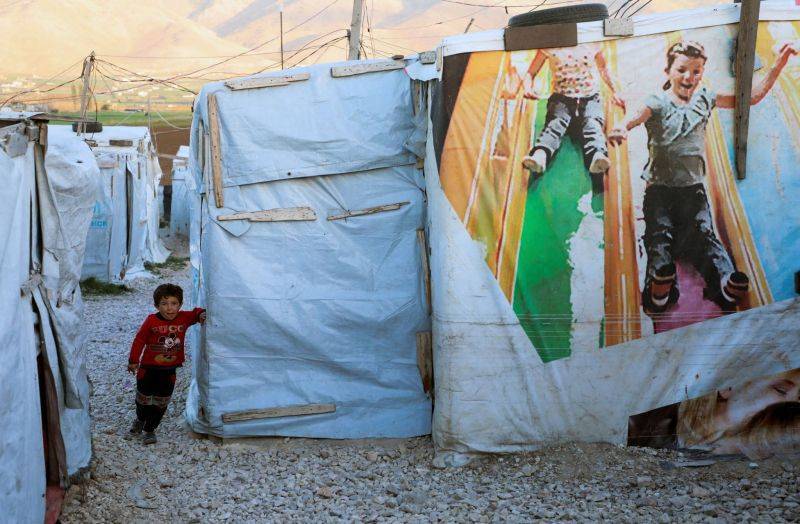
A Syrian child in a refugee camp in Deir Zenoun in the Bekaa. (Credit: Mohamed Azakir/Reuters)
BEIRUT — Social Affairs Minister Hector Hajjar said Monday in a speech that hosting Syrian refugees in Lebanon has negative economic, security, social and ecological consequences on the country, accusing them of committing “85 percent of crimes” and benefiting from “state-subsidized services.” The state pays an extra “$1 billion annually” on energy subsidies and “an additional spending of up to $3 billion” on bread for Syrians, he added.
Here’s what we know:
• Lebanon currently hosts nearly 1.5 million Syrian displaced people, Hajjar said, labeling them as “displaced refugees.” They account for 30 percent of the inhabitants in Lebanon, and they “live in tents, under inhumane conditions, distributed over 1,000 of the 1,050 Lebanese towns,” the minister said. Hajjar went on to point out “the loss of many job opportunities for the Lebanese, as most of the displaced are engaged in a competitive and illegal economic activity, without contributing to paying taxes.”
• “According to official statistics,” Hajjar said, “85 percent of crimes are committed by displaced persons and 40 percent of those detained by the various security services are Syrians.”
• On the negative social consequences front, the minister said that Syrians’ existence in Lebanon leads to “demographic replacement of population, knowing that one newborn in two is Syrian,” adding that Syrian youth “grow up in pitiful socio-economic and educational conditions.”
• Hajjar called on the international community to save the displaced Syrians and the Lebanese community by “ensuring the safe and immediate return of the displaced Syrians to the safe areas of their homeland, repurposing the current financial aid and allocating it to invest in infrastructure in these safe Syrian areas, encouraging the reception of displaced Syrians, who lack reasons to return to their country, in countries other than Lebanon, compensating Lebanon, which has so far incurred losses estimated at $30 billion, through a plan, distributed over a specific period of time.”
• The social affairs minister along with the Foreign Minister Abdallah Bou Habib and a Lebanese delegation traveled on Monday morning to Brussels to participate in the European Union's sixth conference on the future of Syria and the region. The aim of the conference is to raise international awareness and support the Syrian people.